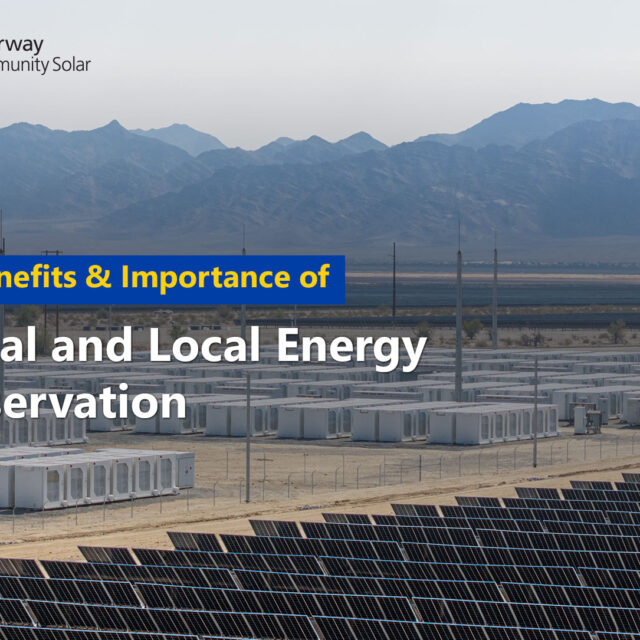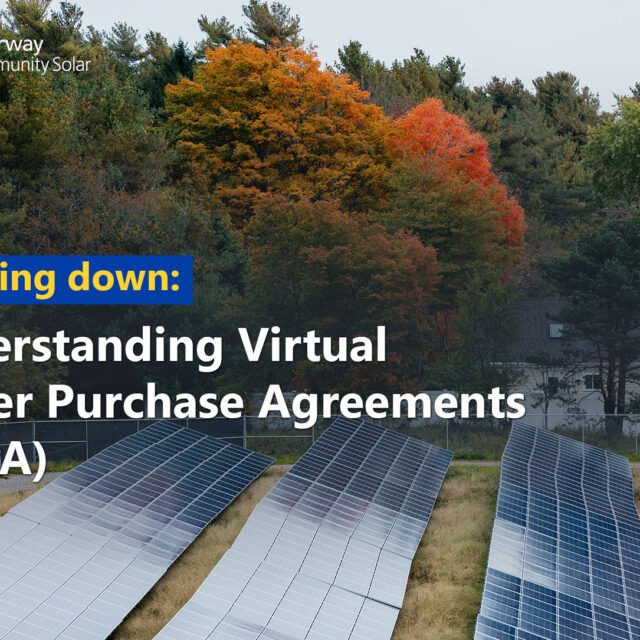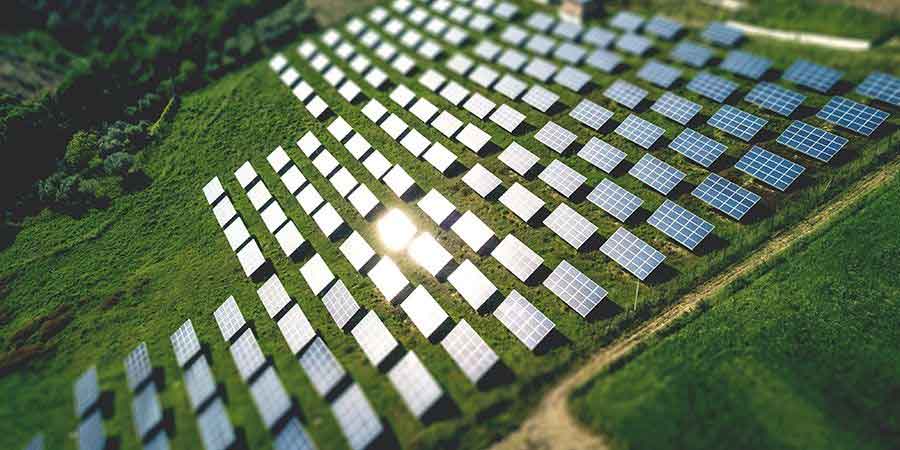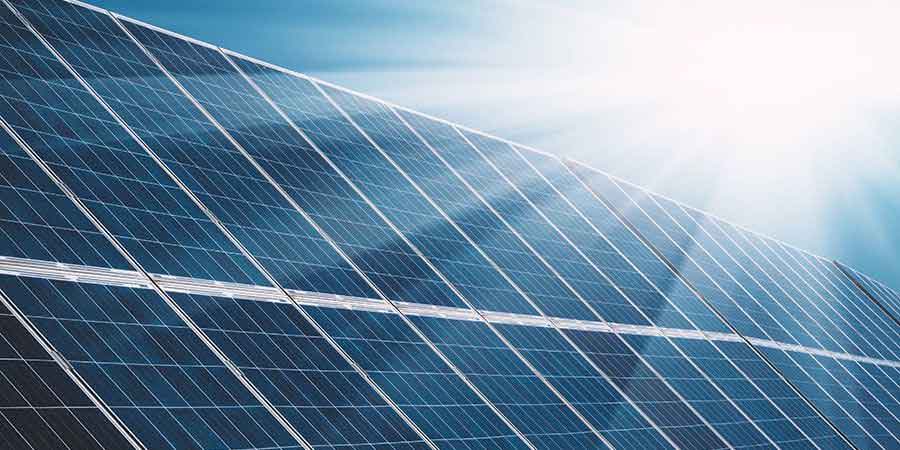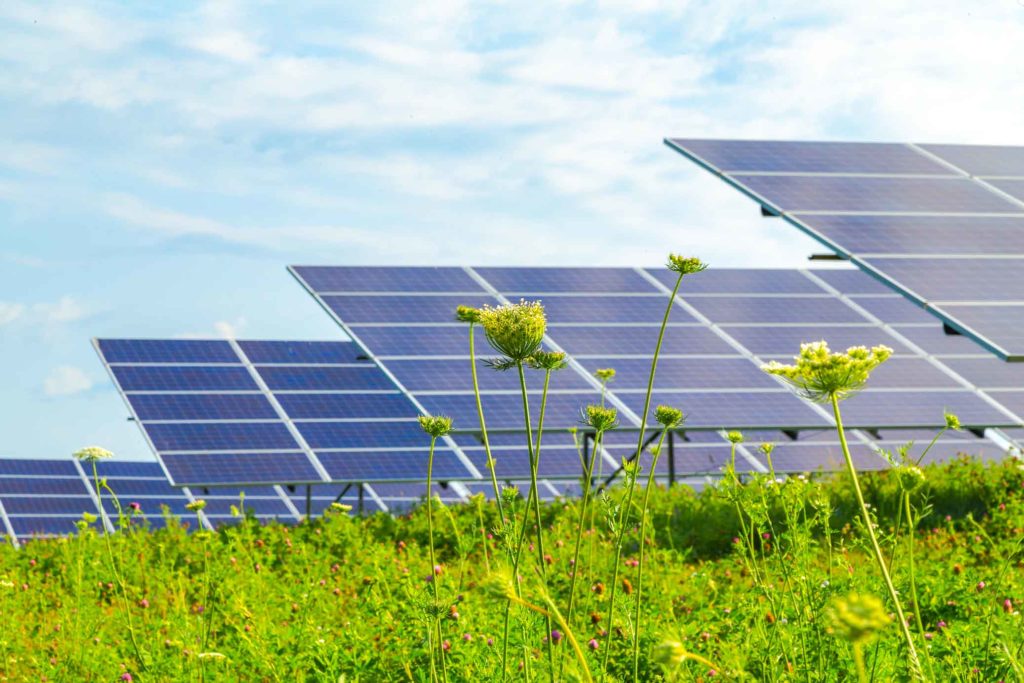
Clean energy that can ultimately save you money — that’s solar power in a nutshell. Yet when it comes to traditional solar power, like installing rooftop solar panels or shingles on your home, there are admittedly some drawbacks.
If your home falls into the minority of homes having a roof qualified to support solar panels or not impacted by shading, you may still face potential challenges. Should you be looking to move, taking your custom solar panel assembly with you is cumbersome at best, impossible at worst. In addition, with a traditional solar power setup, your pool of potential home buyers can be limited; not all house-hunters will want a solar installation. Maybe they’re not keen on the system’s maintenance needs, or aesthetically prefer a conventional roof.
With a Community Solar subscription, however, these issues simply melt away. Community Solar— also called shared or roofless solar —is a savvy way for energy-conscious consumers to enjoy the benefits of solar power without having to deal with the potential pitfalls of a residential solar panel installation. Instead, a vast array of solar panels is built within your region in a dedicated “solar farm.” You and your fellow subscribers pay Clearway a monthly fee for the energy generated by the Community Solar farm, which allows you to earn bill credits for that very same energy. These credits help offset a portion of your electricity bill every month, saving you money compared to otherwise paying the standard, regularly fluctuating and historically rising utility rate.
In this way, Community Solar offers resident’s tremendous convenience. Should you move, no problem: if you’re staying with the same utility region, you can easily transfer your subscription to your new address. If a life event occurs, there are allowances that conclude your contract. In some states like New York, Clearway’s program is a cancel anytime offer.*
“One of the most attractive aspects about Community Solar is that it is so much more flexible than conventional, rooftop solar,” shared Sahaj Patel, Clearway Community Solar’s sales specialist. Are you thinking about installing panels on your roof? Here are some considerations you might want to have before you take the leap.
Solar Panels on Your Mind
We’re not knocking solar panels—these amazing pieces of technology have converted an untold amount of otherwise-foregone sunlight into clean energy all over the world. We are being clear-eyed, though, about some of the challenges a solar panel installation can pose for certain homeowners, especially those who end up moving homes.
Getting solar up and running on your home costs money for initial installation, plus maintenance over the years as the panels will need cleaning and, inevitably, hardware fixes. Solar arrays often require holes to be drilled in your roof. While professional installers will in most cases do a quality job and not affect the integrity of your roof, there is always a risk.
Community Solar, on the other hand, alleviates these concerns by moving all installation and maintenance off-site.
“The solar panels aren’t on your property,” notes Patel. “That means you don’t have to maintain them, you don’t have to worry about the warranty of your roof, and you don’t have to deal with any issues that might come up. With Community Solar, it’s really out-of-sight, out-of-mind, and hassle-free.”
What You Can’t Take with You
Just as homes come in all shapes and sizes, so, too, do their roofs. Accordingly, solar panel installations are not one-size-fits-all; in fact, they’re closer to one-size-fits-one.
Factors in play when designing a solar power installation include the direction a home faces and the resulting sun angles it receives over the course of a year, how much usable roof space is available, the energy an owner hopes to generate, possible shadows from other nearby dwellings or trees, and so on. Essentially, solar installations end up being tailormade to a particular residence, and thus may not translate well to a different residence.
“If you look at that solar system on your roof, it’s really custom to that home,” said Patel. “Unfortunately, that can often mean that solar panel owners cannot take that solution with them when they move.”
These logistical issues are amplified by the cost associated with breaking down and then reinstalling a solar setup, as well as local permitting costs. In short: it’s a hassle.
In one fell swoop, Community Solar does away with all that rigamarole.
Don’t plan on moving? Many of us imagine we’ll be staying put for the foreseeable future . . . but then things change.
“What happens when life happens?” Patel points out. “What if you need to move into a different community? What if your family grows, or some of your kids move out and you need to downsize? The commitment you made to your traditional solar panel rooftop setup is then a problem you’ll have to contend with that you hadn’t been planning for.”
One Less Obstacle
Another option is, of course, to sell your home as-is with the solar panels. After all, for some environmentally- and economically-minded buyers, the installed solar assembly may be a huge selling point.
For other folks, though, the panels may not be something they want to take on or like the looks of, especially if the panels are on the street-facing side of the residence.
“When homeowners put in a solar panel installation on their roof, they’re potentially shrinking the population that’s willing to buy the home,” said Patel.
Once again, Community Solar completely removes this possible burden from the already-frantic process of moving.
“That’s the beauty of our Community Solar product,” said Patel. “Not only is it out-of-sight, out-of-mind, but it’s hassle-free, and not just during the initial setup, but really for the lifespan of the customer’s participation in the program.”
*Customers may cancel their Clearway Community Solar subscription with a minimum of 90 days’ notice. Customers on active farms who receive invoices from Clearway Community Solar will be required to pay their invoices through the 90-day notice period. Subject to the terms of the Community Solar Agreement, the cancellation fee ranges from $0-$200.

